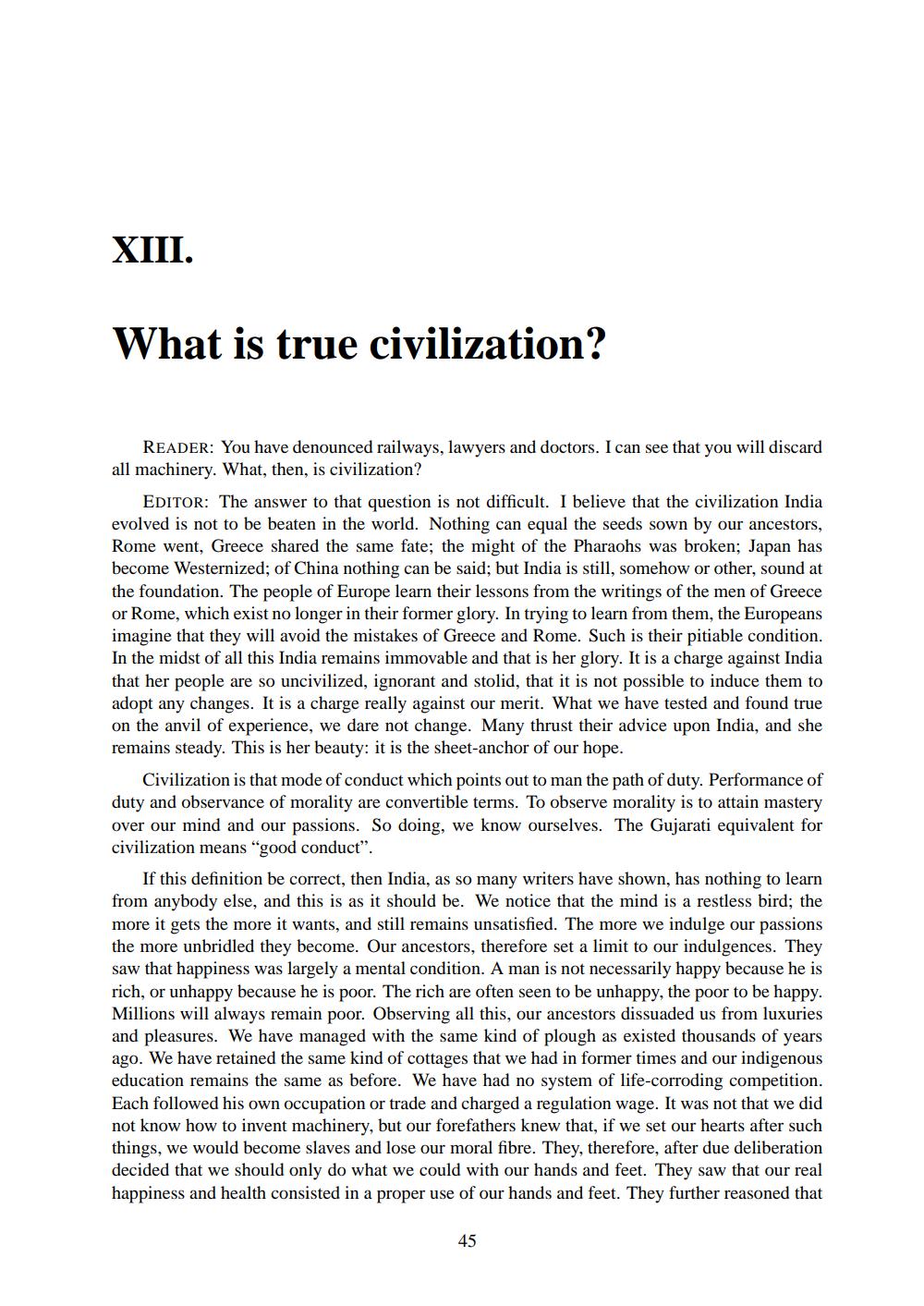________________
XIII.
What is true civilization?
READER: You have denounced railways, lawyers and doctors. I can see that you will discard all machinery. What, then, is civilization?
EDITOR: The answer to that question is not difficult. I believe that the civilization India evolved is not to be beaten in the world. Nothing can equal the seeds sown by our ancestors, Rome went, Greece shared the same fate; the might of the Pharaohs was broken; Japan has become Westernized; of China nothing can be said; but India is still, somehow or other, sound at the foundation. The people of Europe learn their lessons from the writings of the men of Greece or Rome, which exist no longer in their former glory. In trying to learn from them, the Europeans imagine that they will avoid the mistakes of Greece and Rome. Such is their pitiable condition. In the midst of all this India remains immovable and that is her glory. It is a charge against India that her people are so uncivilized, ignorant and stolid, that it is not possible to induce them to adopt any changes. It is a charge really against our merit. What we have tested and found true on the anvil of experience, we dare not change. Many thrust their advice upon India, and she remains steady. This is her beauty: it is the sheet-anchor of our hope.
Civilization is that mode of conduct which points out to man the path of duty. Performance of duty and observance of morality are convertible terms. To observe morality is to attain mastery over our mind and our passions. So doing, we know ourselves. The Gujarati equivalent for civilization means "good conduct".
If this definition be correct, then India, as so many writers have shown, has nothing to learn from anybody else, and this is as it should be. We notice that the mind is a restless bird; the more it gets the more it wants, and still remains unsatisfied. The more we indulge our passions the more unbridled they become. Our ancestors, therefore set a limit to our indulgences. They saw that happiness was largely a mental condition. A man is not necessarily happy because he is rich, or unhappy because he is poor. The rich are often seen to be unhappy, the poor to be happy. Millions will always remain poor. Observing all this, our ancestors dissuaded us from luxuries and pleasures. We have managed with the same kind of plough as existed thousands of years ago. We have retained the same kind of cottages that we had in former times and our indigenous education remains the same as before. We have had no system of life-corroding competition. Each followed his own occupation or trade and charged a regulation wage. It was not that we did not know how to invent machinery, but our forefathers knew that, if we set our hearts after such things, we would become slaves and lose our moral fibre. They, therefore, after due deliberation decided that we should only do what we could with our hands and feet. They saw that our real happiness and health consisted in a proper use of our hands and feet. They further reasoned that
45




